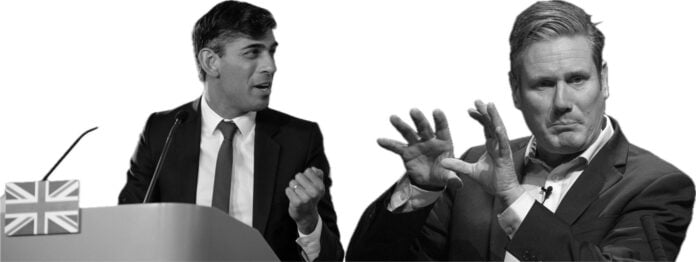In a pivotal moment for UK politics, the ITV general election debate showcased a direct confrontation between Rishi Sunak and Sir Keir Starmer, the two main candidates for prime minister. As the nation watched, each leader presented starkly different visions for the future, emphasising critical issues such as taxes, immigration, the NHS, and more. This debate not only highlighted their policy differences but also set the tone for the final stretch of the campaign.
Taxation and Economic Strategy:
Rishi Sunak, representing the Conservative Party, aggressively targeted the Labour Party’s fiscal policies, asserting that a Labour government would lead to significant tax increases for every working household—an increase estimated at £2,000. Sunak cited a Treasury analysis claiming Labour’s plans included £38.5 billion in unfunded commitments. Throughout the debate, he painted Labour as a tax-heavy party, warning voters of increased financial burdens across various sectors.
In contrast, Sir Keir Starmer focused on the Conservative Party’s track record, criticising their handling of the economy and public services. He acknowledged some level of tax increase under his administration but argued that the Conservatives have already elevated tax levels to their highest in 70 years, due to poor fiscal management and economic strategies.
Immigration and Social Issues:
Immigration emerged as a contentious topic, with Sunak promising to reduce numbers and potentially withdraw from the European Convention on Human Rights to regain control over the UK’s borders. Starmer, however, emphasised adherence to international laws and agreements, presenting a more humanitarian and globally integrated approach.
The debate also touched on social care and the NHS, with Starmer attacking the Conservative’s 14-year record of purported neglect and mismanagement, particularly highlighting the ongoing strikes and service delays. Sunak responded by critiquing Labour’s lack of a clear, actionable plan to address these crises.
Political and Public Reactions:
The immediate public and political reaction was mixed, with a YouGov snap poll slightly favouring Sunak. However, breakdowns by issue showed Starmer ahead on the NHS, education, and the cost of living. Commentators noted both candidates’ strategies: Sunak’s assertive, often interruptive style contrasted with Starmer’s more measured, if less detailed, responses.
The ITV debate was less about swaying undecided voters and more about consolidating base support. Both leaders stuck closely to their scripts, perhaps mindful of the high stakes involved. As the UK inches closer to election day, voters are left weighing a clear choice between two contrasting visions for the country’s future.
Further Reading:




